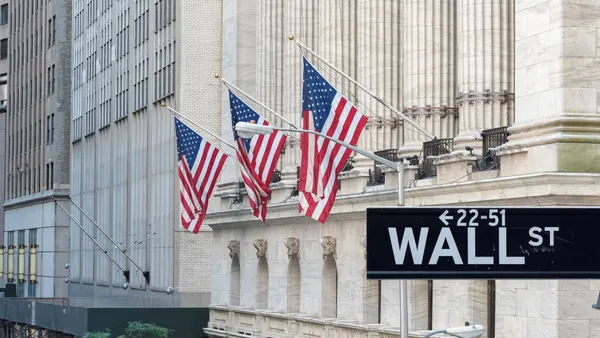ATLANTA — Consumers may be growing more accustomed to the interconnectedness of technology and the convenience it affords. But banks, like other companies, should practice caution when it comes to the internet of things (IoT), First Internet Bank President and CEO David Becker said during a panel discussion at Bank Innovation Build on Wednesday.
Just because a consumer can order items from their smart refrigerators, doesn't mean it's a good idea for them to check a bank balance while operating a vehicle, Becker said.
"The safety issue is a huge concern," said Becker, who founded the branchless First Internet Bank in 1999. "A lot of it is building in with the other partners. Let their technology catch up. Don't necessarily jump out to the forefront and create a dangerous situation for the consumer. They want some things, but sometimes they don't realize the ramifications of what they're asking for until it's too late."
During the wide-ranging discussion, panelists also weighed in on security and data protection for financial institutions, with some offering tips and best practices, as well as their own predictions for where the industry is headed.
Craig Schleicher, who heads innovation for City National Bank in California, said he thinks the industry will see more automation in security.
"As we move toward a lot more transactions being automated with triggers, we're going to see an evolution from card controls to much more dynamic and robust controls around individual transactions and what you permit without a human in the loop and what you don't. It's going to be a fun space to see evolve," he said.
Schleicher said the concept of a financial institution's fiduciary relationship — doing everything in the best interest of the client — can be applied to how banks can help customers manage their identity.
"We're seeing a lot of appetite for value-add services around identity theft protection and dark web monitoring," he said. "Some of these services started out with preventing financial fraud, but are now looking to protect their clients in other ways."
Jig Patel, chief innovation officer for Fiserv's digital banking group, said it's imperative that fintechs and banks forge partnerships to combat security threats.
"As we continue to get more and more virtual in this space and shed those faults, I think it's going to be critical, whether it's a physical bank or a service provider, or anyone else, to come together and partner rather than try and go it alone," Patel said. "From the data we're seeing, it's probably not going to be feasible to do it by yourself. It's going to take a consortium of sorts to help combat this."
Jamie Warder, executive vice president and head of digital banking at KeyBank, had a more optimistic take on the future of data security.
Warder said he thinks each new iteration in the history of payment tools — from checks to credit cards, to mobile payment capabilities — has helped create better ways to protect data.
"I just look at the emerging technologies and the ability to mash those together to ensure that the right principal is asking to do something, and the wrong principals aren't allowed to. I think with our trust issues, the worst days are behind us, not in front of us," he said.
Grasshopper Bank CEO Judith Erwin, whose entrepreneur-focused financial institution was recently awarded a national bank charter, said maintaining a solid vendor management program is an important security practice — and something regulators eye closely.
"We use a lot of third parties, and we have very specific buy-versus-build decisions," Erwin said. "Your vendor management process has to be bulletproof, and [there has to be] a huge amount of diligence. By the way, that's what your regulators will be talking to you incessantly about."
Financial institutions must understand that the data they store belongs to the client, Erwin said.
"It's not ours. We are custodians of it," she said. "Being very concerned about that and making it retrievable by your clients is the No. 1 goal."













